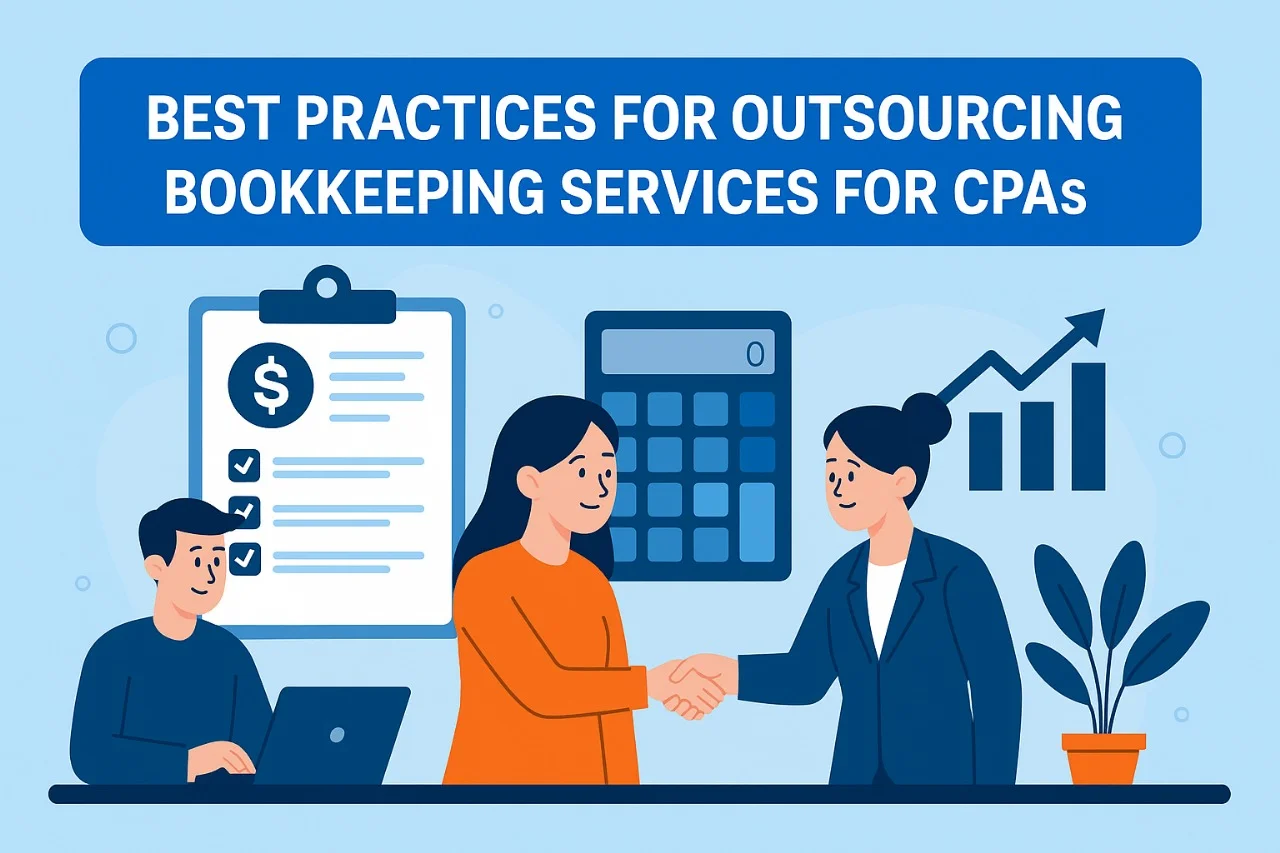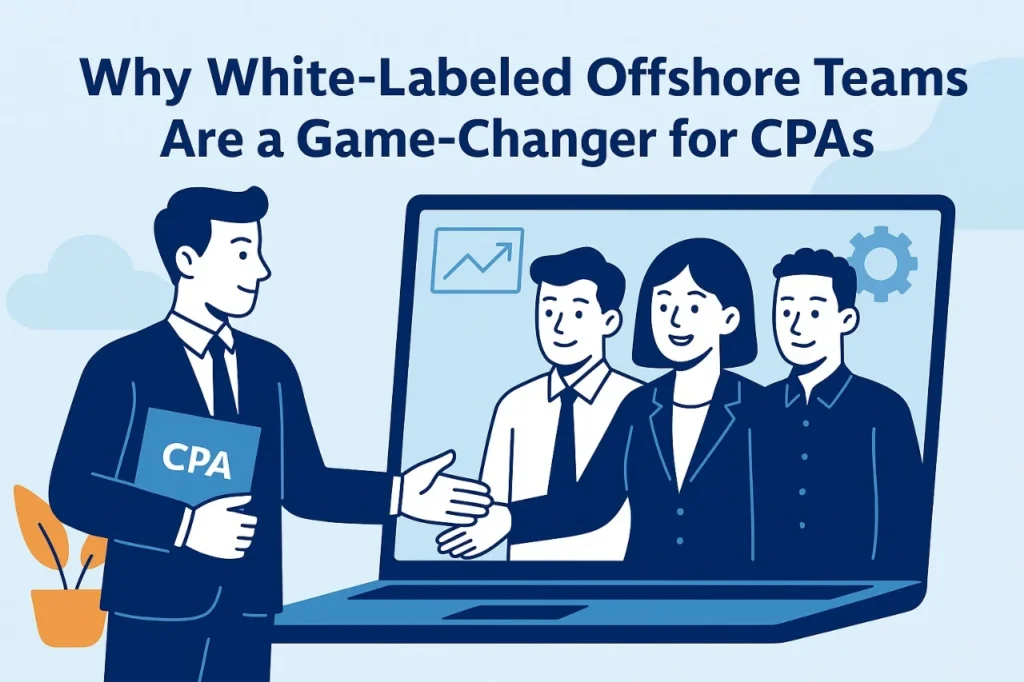For CPA firms looking to scale efficiently, offshore accounting partnerships have become a game-changing solution. They provide access to skilled professionals, reduce costs, and enable firms to handle high-volume work without increasing local headcount. But not all offshore collaborations are created equal. Successful partnerships require the right approach, clear expectations, and robust controls.
In this blog, we share 5 proven best practices to ensure your offshore accounting partnerships deliver long-term value for your firm and your clients.
1. Define Clear Objectives and Scope
The foundation of any strong partnership is clarity. Before engaging an offshore team, document:
- Scope of work: Tasks to be outsourced (e.g., bookkeeping, payroll, tax preparation, reconciliations).
- Expected outcomes: KPIs such as accuracy, turnaround times, and client satisfaction scores.
- Engagement model: Whether you need dedicated resources or flexible, project-based support.
Having well-defined goals helps both parties align on expectations and avoid misunderstandings down the line.
2. Document Processes and Standard Operating Procedures (SOPs)
Offshore teams work best when they follow your firm’s established processes. Investing time in detailed SOPs ensures:
- Consistency in task execution across different team members.
- Reduced dependency on onshore staff for clarifications.
- Easy onboarding of new offshore accountants as your firm grows.
This creates a predictable, high-quality output that mirrors your in-house standards.
3. Build a Strong Communication and Governance Framework
Physical distance should never translate to a lack of control. Establish a clear communication cadence and oversight structure:
- Daily or weekly status calls for task updates.
- Shared project management tools for visibility on progress.
- Defined escalation paths for queries or delays.
- Regular quality audits to ensure compliance with your standards.
Governance ensures your offshore team feels connected, accountable, and aligned with your firm’s goals.
4. Prioritize Data Security and Confidentiality
Client trust is the cornerstone of your CPA firm’s reputation. Before finalizing an offshore partner, ensure they have:
- Encrypted file transfer and secure data access protocols.
- NDA-backed engagement for every team member handling client data.
- Role-based access control to prevent unauthorized information sharing.
- Adherence to regional compliance frameworks (e.g., GDPR, SOC 2).
These safeguards ensure sensitive financial information is protected at all times.
5. Start Small, Scale with Confidence
The best offshore partnerships are built gradually. Begin with a pilot project or a small set of clients to:
- Test process alignment and team capabilities.
- Build mutual trust and rapport.
- Identify process improvements before scaling up.
Once confidence is established, you can expand the scope and size of your offshore team, ensuring a smooth and sustainable growth trajectory.
Key Takeaway
Offshore accounting partnerships can help CPA firms unlock growth potential, reduce costs, and improve client service—but only if managed effectively. By setting clear objectives, standardizing processes, maintaining strong communication, securing data, and scaling strategically, you can transform offshore support into a long-term competitive advantage.



